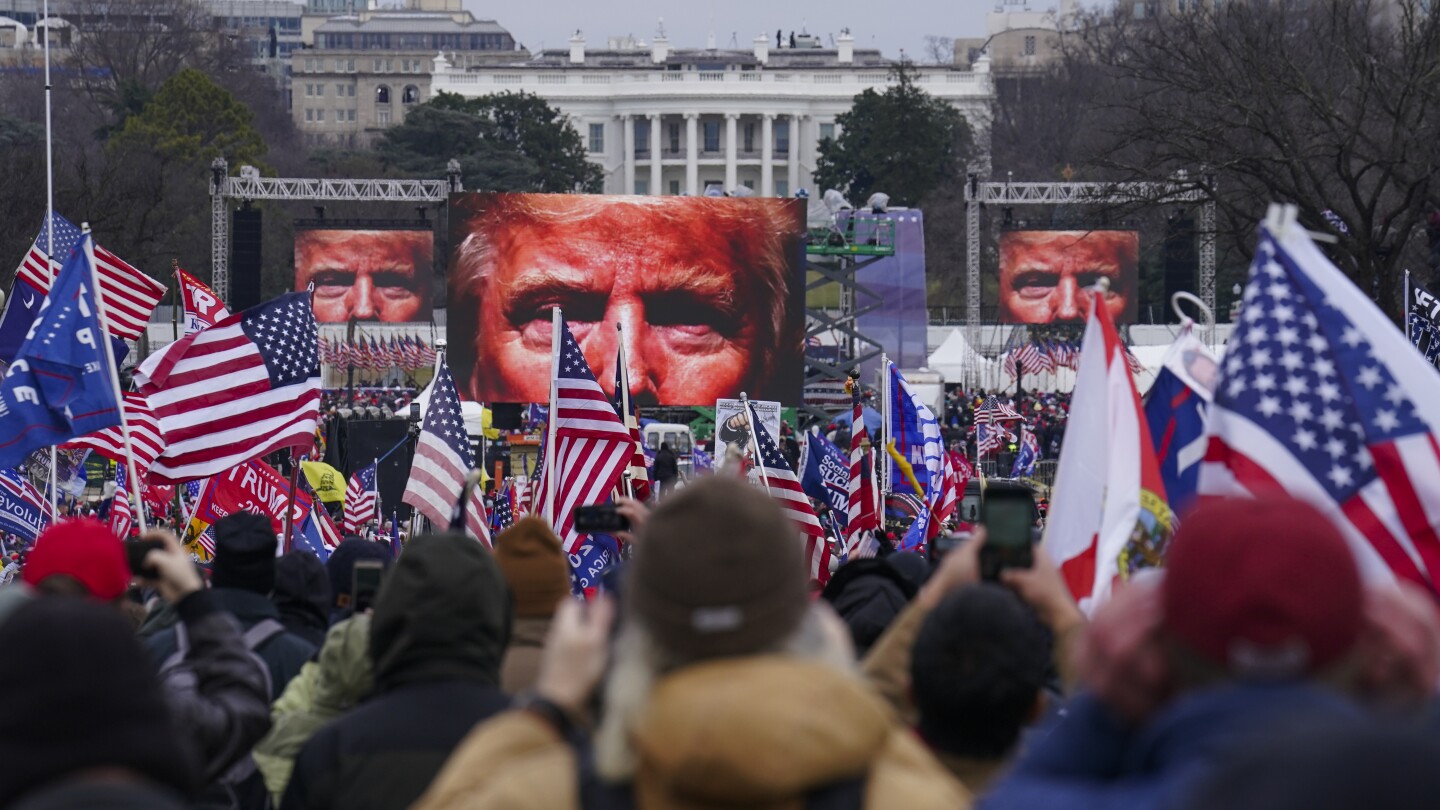It took months before the first mention of Section 3 in a public document. Free Speech For People, a Massachusetts-based liberal nonprofit, sent letters to top election officials in all 50 states in June 2021, warning them not to place Trump on the ballot should he run again in 2024 because he had violated the provision.
None of them took action, part of a general silence in reaction to the group’s arguments.
“People were just treating it as something that was not serious,” recalled John Bonifaz, the group’s co-founder.
By January 2022, the group decided to test Section 3 in court.
Looking for a lower-level defendant, Sherman’s organization zeroed in on Couy Griffin. The subject of one of the earliest Jan. 6 prosecutions, Griffin already has a rich legal record. He was was recorded in a restricted area of the U.S. Capitol as head of a group called Cowboys for Trump. Griffin was convicted of illegally entering the Capitol, but acquitted of engaging in disorderly conduct.
He still served as a commissioner in a rural New Mexico county, which kept CREW’s attention on him. On Sept. 6, 2022, a New Mexico judge ordered Griffin removed from his position. It was the first time in more than 100 years an official had been removed under Section 3. Griffin has appealed to the Supreme Court.



I’m not in the legal profession, so what context or historical evidence did he miss?
Also to be clear, I’m not saying that Tillman makes a convincing argument, or one that I agree with, only that it’s an argument as to why the President might not be an “officer of the United States.”
The historical context is that during the ratification proceedings, a senator basically spoke up and said “Hey I think we forgot to include the President and we can’t have that” and another one replied “Don’t worry, he counts as an officer”.
And remember, when the SCOTUS originalists interpret the constitution, their number one consideration is “What did the people who wrote this particular amendment mean by this word / phrase?” In this case, the answer is clear.
I’d love to see a suit taking a corporation to the mat in that in its mere modern existence it’s usurped the founders intent…
Which was a frothing contempt for them. They recognized they were helpful for big projects that society needed, so a charter would be granted to say…build a bridge…and upon completion immediately disbanded.
Id call this the greatest court in history if they restored that. I think the earth rotations reversing is more likely.
It’s not necessarily the founders intent that matters. It’s whoever wrote the text in question.
So when interpreting a law about corporations written in 1930, what matters is how “corporation” was defined in 1930 not 1787.
They didn’t literally say that though. They simply referred to the previous part that said “or hold any office in the US”. It’s pretty obvious that’s what he meant, but it isn’t explicitly what was said or written.
Originalists have to rely on what words “obviously” meant at the time, because “explicit” definitions are often unavailable.